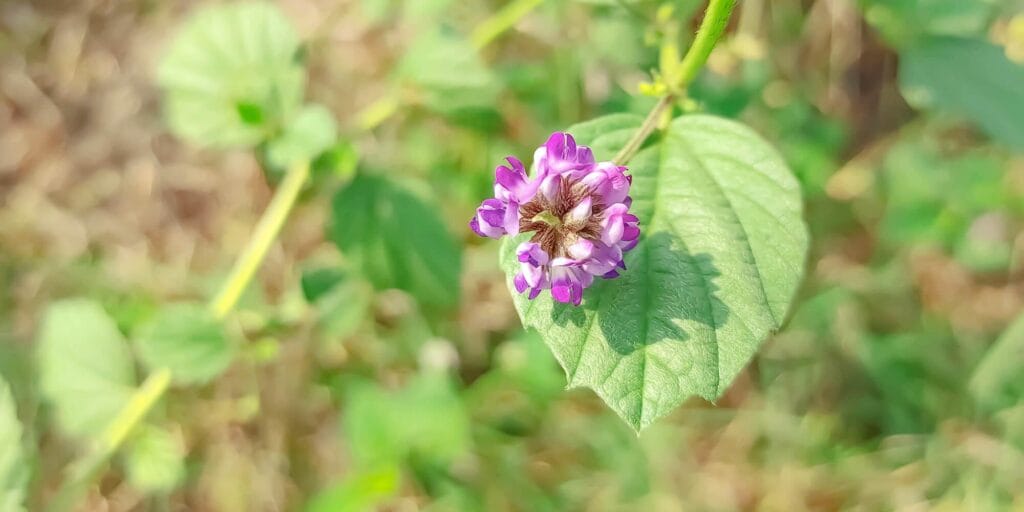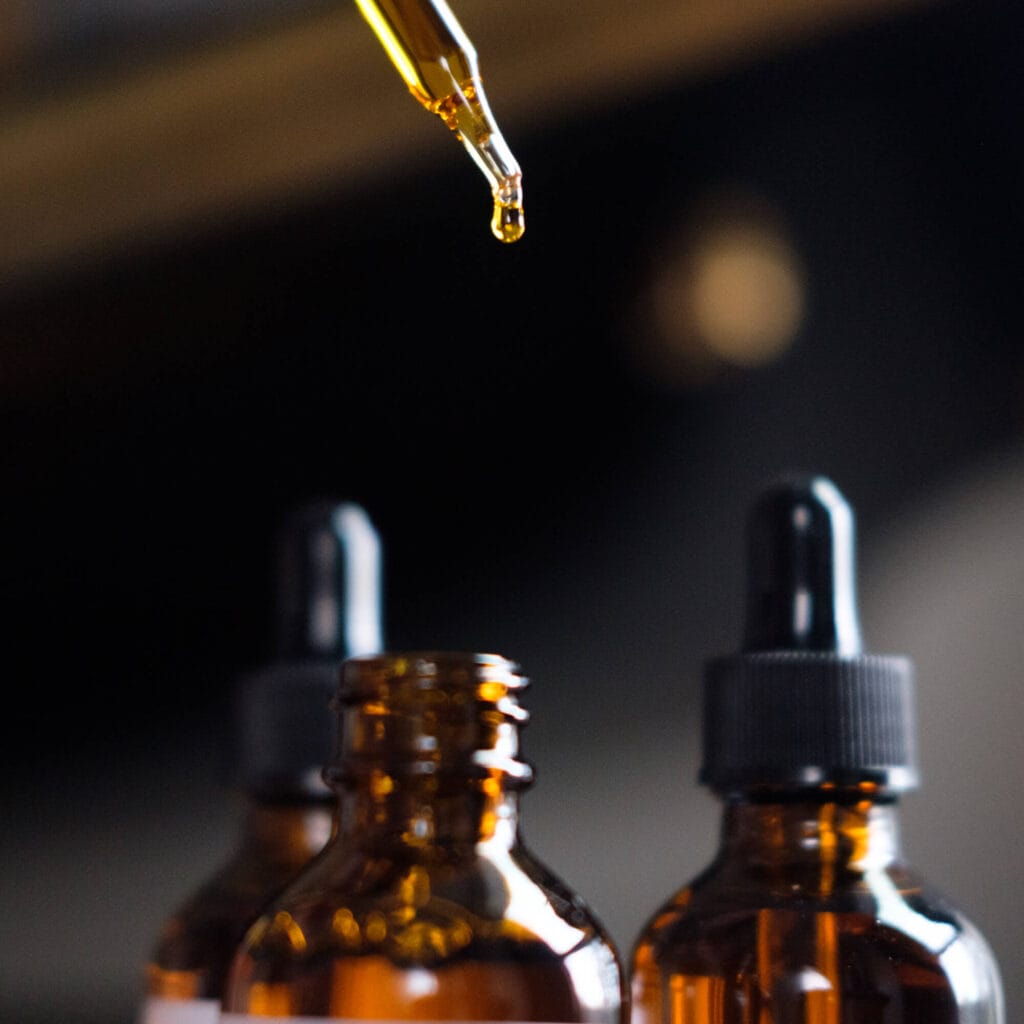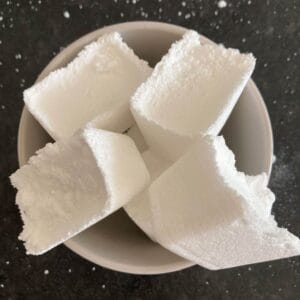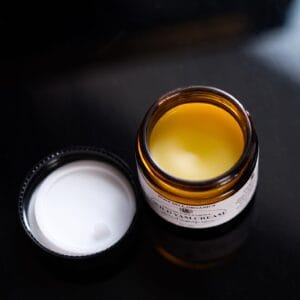
What is Bakuchiol?
Bakuchiol is extracted from the seeds and leaves of the Psoralea corylifolia plant, also known as the babchi plant, which is native to regions of India, Pakistan and China. The extraction process typically involves the use of solvents like ethanol or hexane to isolate the bakuchiol compound from the plant material. After the initial extraction, the solution undergoes further refinement and purification processes to ensure that the bakuchiol is free from impurities and ready for use in skincare formulations. This method of extraction is said to preserve the integrity of the bakuchiol. Unlike traditional retinoids, bakuchiol offers these benefits without causing irritation, making it a popular choice for those seeking natural, effective skincare solutions.
Our Concerns
- Sourcing: The countries where it is grown and harvested.
- Extraction Process: Use of harmful chemicals
- Missing Information: Brand label and/or website not listing Bakuchiol content percentages in product.
- Incorrect/Unsafe Dosage: High or Low levels of Bakuchiol in products.
- Effectiveness: Does it work?
Sourcing: Indian, Pakistan & China
The babchi plant, native to India, Pakistan, and China, can also be cultivated in other subtropical regions like South Africa and Sri Lanka. However, the regions where these plants are commonly harvested often lack strict farming regulations. In China, for instance, the soil has been contaminated with heavy metals for decades due to industrialization and minimal agricultural oversight.
Similarly, in Pakistan and India, regulations are often insufficient, leading to concerns about the quality of exported products. These products may be diluted, contaminated, or polluted during cultivation and processing. Since the babchi plant is typically wild-grown, it does not carry an organic certification, and organic farming practices are often not strictly followed, raising further questions about the purity and safety of the final product.
Extraction Process
Bakuchiol is a compound derived from the seeds of the babchi plant. While this plant has been used for centuries to treat various ailments, it wasn’t until the 1960s that Bakuchiol was successfully isolated from the seeds. However, the seeds themselves can’t be used directly in cosmetics like serums, oils, or lotions because they contain phototoxic phytocompounds, which become harmful when exposed to light.
To safely use Bakuchiol in skincare, it is typically extracted using solvents like hexane or ethanol. This process not only allows producers to concentrate the Bakuchiol but also helps make it photostable, meaning it won’t degrade when exposed to light. After extraction, the Bakuchiol undergoes a purification process to remove any residual chemicals and is then deodorized for use in products.
It’s important to note that the purity of Bakuchiol is crucial. If a brand uses a less expensive Bakuchiol with a purity of less than 99%, there’s a higher chance that residual solvents or chemicals could remain in the final product, which could end up in your skincare routine.
Brand not disclosing Bakuchiol content.
If a brand does not disclose the amount of Bakuchiol in their products, but claims it will deliver retinol-like benefits, their product is questionable. This raises a serious concern: it suggests that the brand is more interested in labeling their product with Bakuchiol than in ensuring it delivers real results. Such a strategy risks damaging the brand’s reputation when consumers realize the products don’t live up to their promises.
Correct Dosing of Bakuchiol
The main supplier of Bakuchiol, Syntheon, recommends that products contain between 0.5% and 1% Bakuchiol to be truly effective. If the concentration is too low (anything below 0.2% is unlikely to work at all), you’re left with an overpriced product that doesn’t deliver results. On the flip side, if the concentration is too high (over 1%), it could lead to significant skin irritation.
Effectiveness: Does it work?
According to Harvard Health;
“A small study in the British Journal of Dermatology found bakuchiol to be just as effective at erasing fine lines and improving skin color as retinol, but with less peeling and burning. The challenge in interpreting these results as a win for bakuchiol was the study’s small size — just 44 participants (seven of whom dropped out). In a different study, a bakuchiol-containing cleanser and moisturizer improved skin smoothness and signs of aging in 60 older women with sensitive skin.
Another trial evaluated a product that combined bakuchiol with melatonin and the vitamin C derivative, ascorbyl tetraisopalmitate in a three-in-one anti-aging cream. After 12 weeks of once-daily use, the researchers noted fewer wrinkles, increased skin firmness, and an overall improvement in skin quality among the participants. Because this study used a combination of ingredients, any skin improvements may or may not have been related to bakuchiol.
Other studies on bakuchiol were conducted on skin cells or skin substitutes, which makes it hard to draw any real conclusions about how they’d perform on human skin. By comparison, retinoids have been studied since the 1980s in trials including hundreds of (human) participants.“
These studies might make you question whether the claims about skin-firming and evening out skin tone are really accurate. However, other research done on rats has shown some promising results.

Our Take
While Bakuchiol may be gentler on the skin compared to retinol, we can’t fully endorse this product as organic or natural. If you’re looking for a more natural alternative to retinol or similar synthetic products, we highly recommend trying Frankincense Resin (Boswellia Carteri) infused into Black Seed Oil and Rosehip Seed Oil.
Frankincense Resin is naturally rich in Boswellic Acid, which is known for its skin benefits. The great thing is that no solvents are needed to extract this powerful compound—just a simple infusion process into a carrier oil. Since Frankincense is oil-soluble, it blends perfectly with any carrier oil. Boswellic Acid has been clinically proven to enhance skin elasticity and visibly reduce fine lines and wrinkles, leading to firmer, more youthful-looking skin.
Black Seed and Rosehip Seed Oils are fantastic for evening out skin tone and reducing dark spots. Rosehip Seed Oil is also packed with vitamins A and C, which are essential for healthy, glowing skin. Aging is inevitable, but we can certainly choose to age gracefully and naturally in the most non-toxic way!



